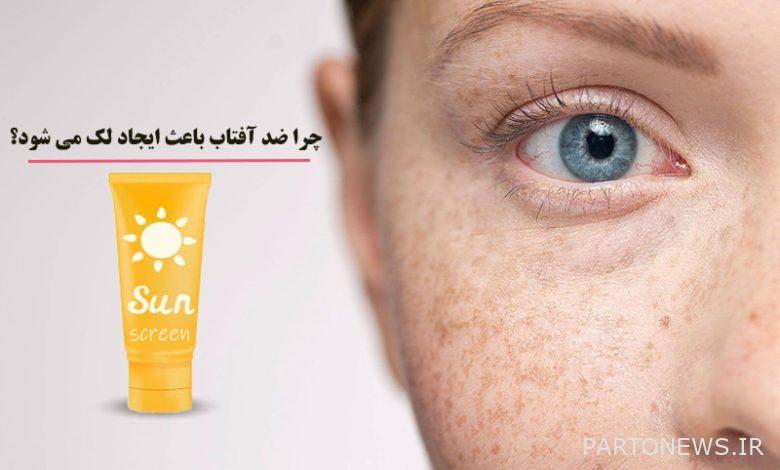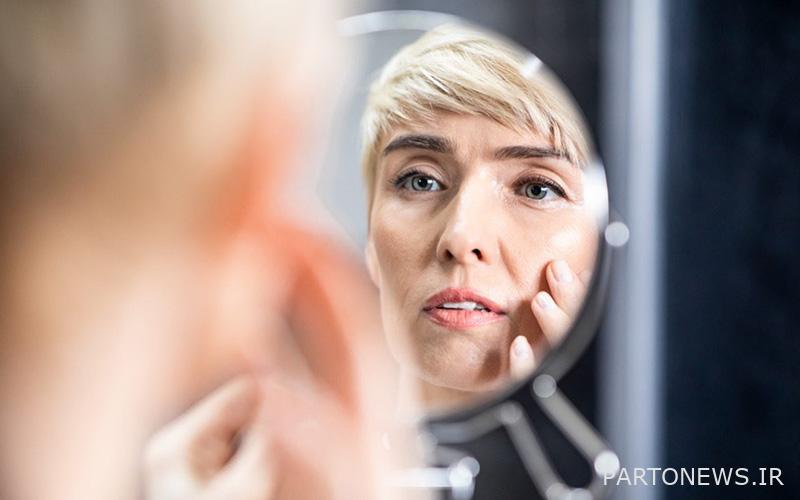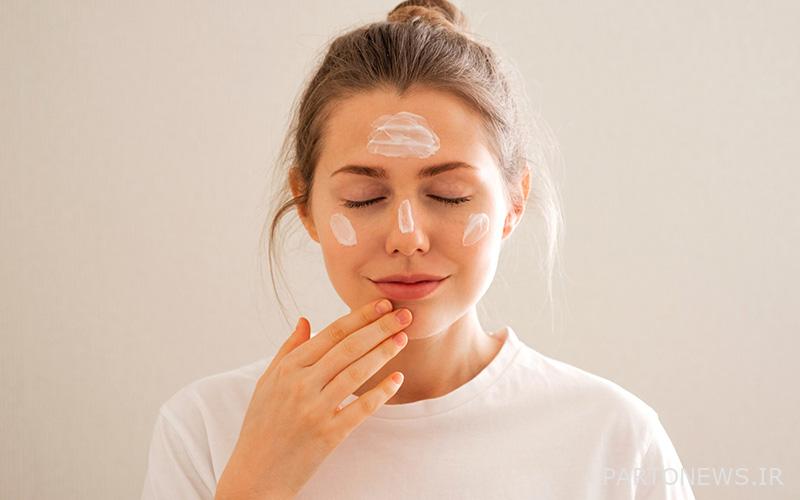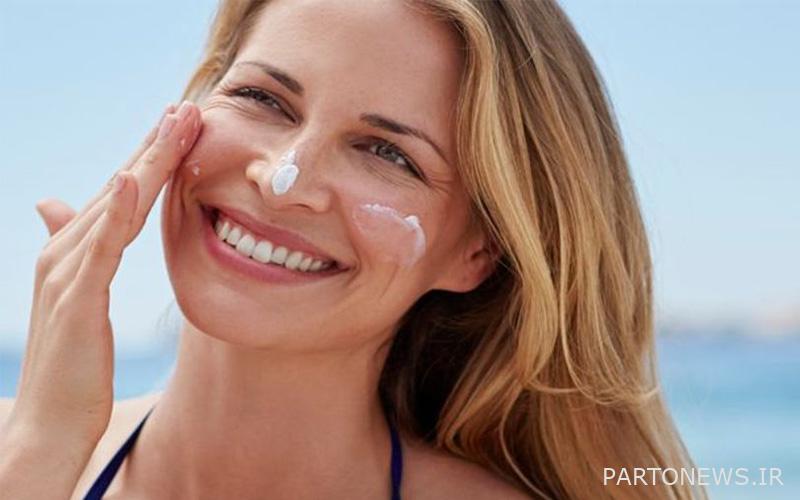Why does sunscreen cause blemishes? (Effect of sunscreen on stains)

[yasr_visitor_votes size=”medium” readonly=”yes”]
You may have heard that some people claim to have skin blemishes after using sunscreen! Sunscreen, usually in the form of a cream, is a product that should be used to neutralize the sun’s harmful rays on the skin. But can sunscreen really be a factor in causing blemishes, along with its amazing skin benefits? Although blemishes can be greatly improved by using anti-blemish cream, but first of all, it is better to find out the cause. In this article, we will examine the effect of sunscreen on stains.
Types of sunscreen
There are two main types of sunscreen:
- Physical sunscreen: These types of sunscreens are often made with minerals such as titanium dioxide and zinc oxide and neutralize UVA and UVB rays from the surface of the skin. Physical sunscreen sits on the top layer of the skin and in many cases is marketed in color.
- Chemical sunscreen: These creams are made of chemicals such as oxybenzone, avobenzone, octisalate, ectocryl, hemosalt and actinoxate and work by emitting sunlight under the skin. The chemical sunscreen, unlike the physical type, penetrates completely into the skin.

Cause of skin blemishes
Before discussing the effect of sunscreen on blemishes, it is best to get acquainted with the causes of skin blemishes. Skin blemishes, if they are freckles, appear when melanin, or skin pigment, accumulates under the skin. Skin blemishes usually occur when a person is exposed to strong sunlight without the use of sunscreen.
Of course, genetics is also of particular importance. People with dark skin and hair are generally less likely to develop blemishes than people with light skin and hair. Hormonal changes, certain diseases, and the use of certain medications can also lead to skin blemishes. With these interpretations, do you think there can be a connection between using sunscreen and creating blemishes?
The effect of sunscreen on stains
Does sunscreen cause blemishes? In answer to this question, in one word, it should be said: No; Sunscreen is not only a source of facial blemishes, but can even help prevent it; So do not pay attention to such rumors. If you think you may have blemishes after regular use of sunscreen, be sure to consider the following:
Improper use of sunscreen
You may have used sunscreen in the sun, but you do not know how to use sunscreen properly. Sunscreen should cover all skin surfaces evenly to have the desired effect.
Sunscreen should be renewed almost every 2 hours because after this time it loses its effect. So if you do not pay attention to this issue, it is not unlikely that you will still get blemishes despite applying sunscreen, because in fact, after 2 hours, the cream has lost its effectiveness.
Never be stingy about using sunscreen and do not apply it in small amounts on your skin. Sunscreen is the only skin product that is recommended for all men and women of all ages. If you have a problem with costs, try to reduce the purchase of cosmetics and spend more money on products that are directly related to the health of your skin.

Choosing the right sunscreen
The effect of sunscreen on stains may be related to the wrong choice of sunscreen. Everyone should choose their sunscreen according to their skin type. If you can not find out for yourself if your skin is dry, oily or combination, we suggest that you seek help from a dermatologist. Also note that the sunscreen you use must have at least SPF 30 to be able to neutralize 97% of the sun’s ultraviolet rays.
Skin blemishes are not just caused by sunlight
As mentioned earlier, skin blemishes are caused by a variety of factors, and exposure to sunlight is not the only cause of blemishes. So if you have spots on your face or other areas of your body after using sunscreen properly and renewing it regularly after 2 hours, look for the cause in other cases. For example, you may have hormonal changes; Especially during pregnancy, women get spots due to the ups and downs of hormones. You may also be taking certain medications, such as birth control pills, and have side effects. Aging and deficiency of some nutrients can also be effective in causing blemishes. However, it is best to see a dermatologist for a more thorough examination.

Does colored sunscreen cause blemishes?
The difference between colored sunscreen and colorless sunscreen is that in the color or powder cream type, pigments are used that create the desired color on the skin. But this does not affect the quality of the sunscreen in terms of neutralizing the damaging effects of the sun’s rays. If the sunscreen has a sufficient protection factor and meets the required quality standards, you do not need to worry about stains at all. Therefore, the mechanism of action of colorless sunscreens is completely the same, and none of them cause skin blemishes.
Conclusion
The effect of sunscreen on stains is nothing more than a rumor. Neither colored sunscreen nor regular sunscreen can stain any skin. Sunscreen can prevent blemishes but does not cause them. So if you have used sunscreen correctly and you feel you have blemishes, you should know that your blemishes have other causes such as hormonal changes, taking certain medications, aging and so on. More specialized examinations in this field should be performed by a specialist physician.


